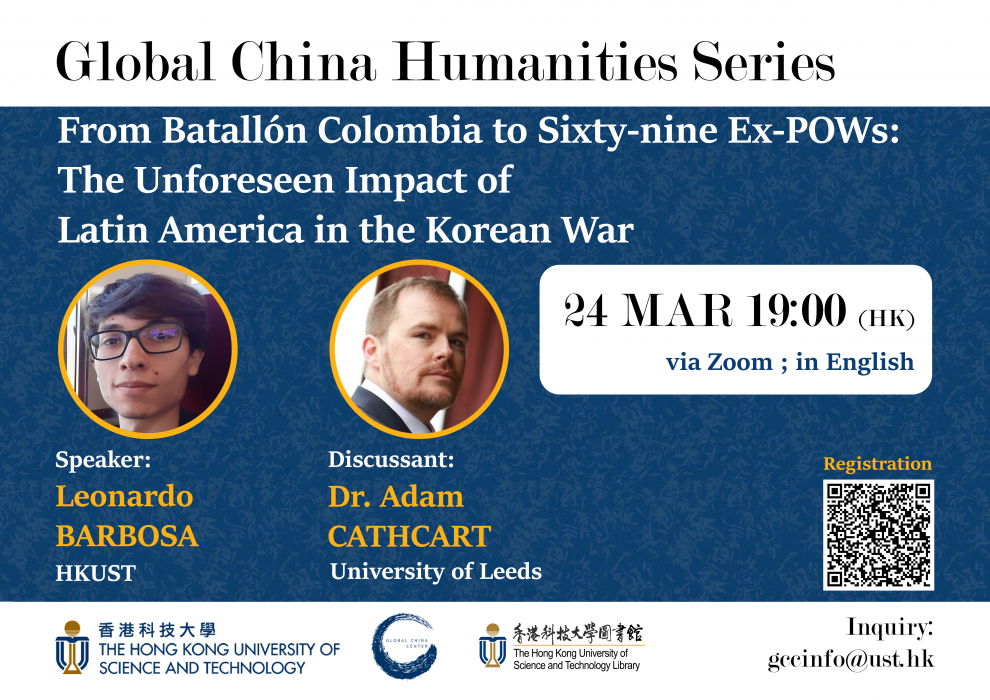About Global China Humanities Series 全球中國人文講座
The Center launches its inaugural Global China Humanities Lecture Series in February 2021. We invite internationally renowned scholars and young, first-book authors to discuss their latest works on topics ranging from Cold War history, diaspora studies, global medicine to literature.
香港科技大學全球中國中心舉辦全新的人文講座系列。我們邀請國際知名的學者、剛推出首本著作的年青學人來探討冷戰史、離散研究、全球醫療史、文學史等等課題。
每次講座先由講者演講50-60分鐘,隨後有30分鐘的問答時間。講座免費,公眾人士均可報名參與,惟必須先報名。講座將以中文或英文進行。
GLOBAL CHINA HUMANITIES SERIES: From Batallón Colombia to Sixty-nine Ex-POWs: The Unforeseen Impact of Latin America in the Korean War
Leonardo Barbosa (HKUST)
Discussant: Dr. Adam Cathcart (University of Leeds)
24th March 2021 (Wed) 19:00 (HK)
Language: English
Please REGISTER HERE to secure your place

Abstract:
This presentation examines how the Latin American countries of Colombia, Brazil, Argentina, Mexico, and Chile responded to the outbreak of the Korean War in 1950. This conflict was the first global conflict in the struggle between communism and capitalism, and therefore, is one of the main starting points in the drawing of future Cold War alliances. Because all independent Latin American countries were part of the establishment of the United Nations in 1945, they would be automatically aligned with the United States. Moreover, since 1947, all these nations had also signed the Inter-American Treaty of Reciprocal Assistance with the United States, which united the entire continent in a reciprocal military alliance. However, when in 1950, the U.S. government triggered the treaty and pleaded for assistance from the Latin American states, the result was frustrating: only Colombia agreed to send troops, while other major countries only contributed with supplies. In 1955, two years after the signing of the armistice, other Latin American countries would also play a significant role, with Brazil and Argentina offering to receive more than fifty prisoners of war who expressed the desire to go to a neutral country during the UN interrogations. Through the Latin American case study, this presentation explains how diplomacy, ideology, military power, economic interests, and domestic issues led each Latin American nation to adopt a different position in response to the Korean War, contradicting most presumed conventions of “automatic alignment” in the Cold War.
Bio:
Leonardo Barbosa graduated from the University of Sao Paulo, Brazil, and is currently an MPhil candidate in Humanities at the Hong Kong University of Science and Technology. He is completing his thesis entitled “From Batallón Colombia to Sixty-nine Ex-POWs: The Unforeseen Impact of Latin America in the Korean War.”